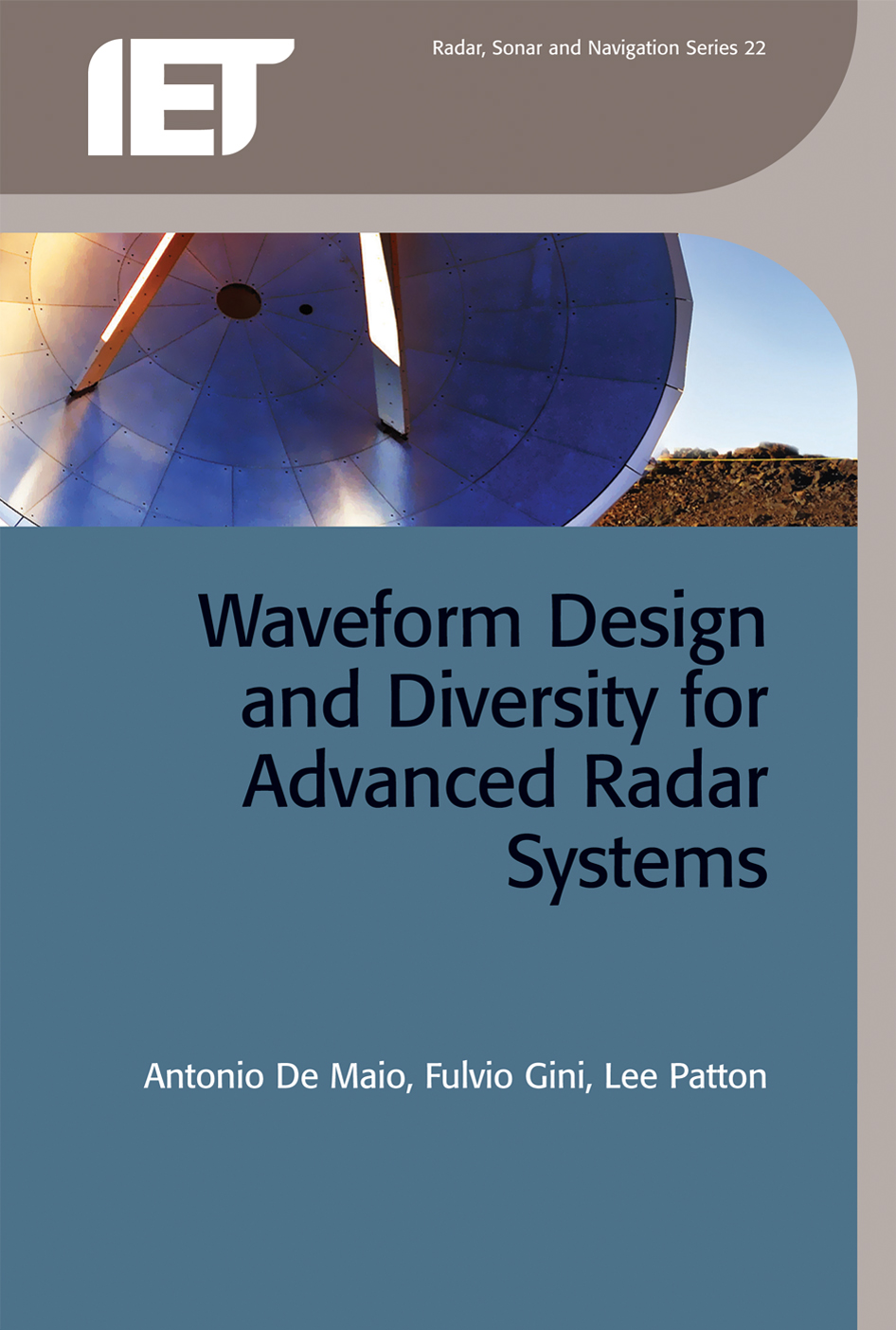- Agricultural Engineering and Technology
- Applied Physics
- Built Environment
- Computing and Networks
- Control, Robotics and Sensors
- Electrical Regulations
- Electromagnetics and Radar
- Energy Engineering
- Healthcare Technologies
- History and Management of Technology
- IET Codes and Guidance
- Manufacturing
- Materials, Circuits and Devices
- Model Forms
- Security
- Telecommunications
- Transportation

Waveform Design and Diversity for Advanced Radar Systems
Edited by Fulvio Gini, Antonio De Maio, Lee Patton
The phrase 'waveform design and diversity' refers to an area of radar research that focuses on novel transmission strategies as a way to improve performance in a variety of civil, defense and homeland security applications. Three basic principles are at the core of waveform diversity. First is the principle that any and all knowledge of the operational environment should be exploited in system design and operation. Second is the principle of the fully adaptive system, that is, that the system should respond to dynamic environmental conditions. Third is the principle of measurement diversity as a way to increase system robustness and expand the design trade space. Waveform design and diversity concepts can be found dating back to the mid-twentieth century. However, it has only been in the past decade or so, as academics and practitioners have rushed to exploit recent advances in radar hardware component technology, such as arbitrary waveform generation and linear power amplification, that waveform diversity has become a distinct area of research. The purpose of this book is to survey this burgeoning field in a way that brings together the diverse yet complementary topics that comprise it. The topics covered range from the purely theoretical to the applied, and the treatment of these topics ranges from tutorial explanation to forward-looking research discussions. The topics treated in this book include: classical waveform design and its extensions through information theory, multiple-input multiple-output systems, and the bio-inspired sensing perspective; the exploration of measurement diversity through distributed radar systems, in both cooperative and non-cooperative configurations; the optimal adaptation of the transmit waveform for target detection, tracking, and identification; and more. This representative cross-section of topics provides the reader with a chance to see the three principles of waveform diversity at work, and will hopefully point the way to further advances in this exciting area of research.
About the Editors
Fulvio Gini is Full Professor at the University of Pisa. His research interests include modeling and statistical analysis of radar clutter data, non-Gaussian signal detection and estimation, parameter estimation and data extraction from multichannel interferometric SAR data.
Antonio De Maio is an Associate Professor at the University of Naples 'Federico II'. His research interest lies in the field of statistical signal processing, with emphasis on radar detection and optimization theory applied to radar signal processing.
Lee Patton is a Senior Research Engineer with Matrix Research, Inc. His research interests include radar signal processing and system design, with a special emphasis on waveform diversity and design.
Publication Year: 2012
Pages: 576
ISBN-13: 978-1-84919-265-1
Format: HBK
